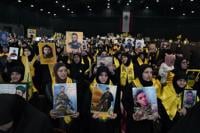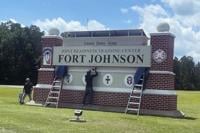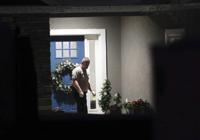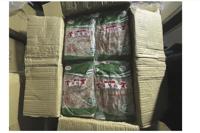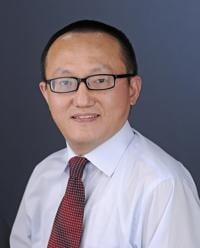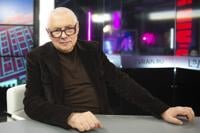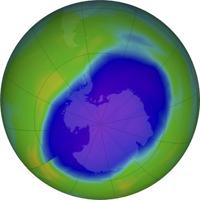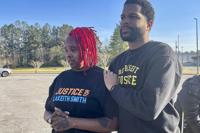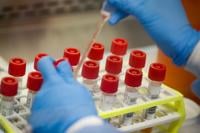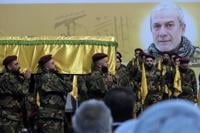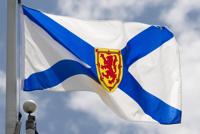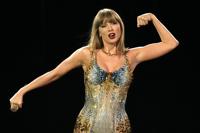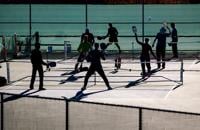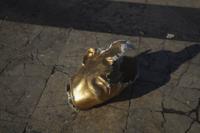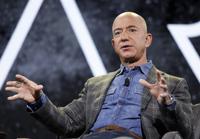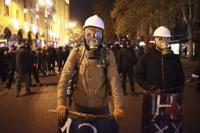BEIRUT (AP) — The leader of Lebanon’s militant Hezbollah group said Friday he wants the next Lebanese president to be a politician who won’t “betray” the Iran-backed faction and assailed the United States for what he described as an undeclared “siege" on his country.
Speaking through a video-link to supporters gathered to mark Hezbollah’s Martyrs Day, a commemoration of the group’s fallen fighters, Hassan Nasrallah did not name a Hezbollah favorite for the post of president. But his remarks indicated the shadowy militant leader plans to exert influence over whoever is elected.
Lebanon’s parliament failed to elect a new president in five attempts That left Lebanon in a political vacuum with a caretaker government that does not have full powers as the country is roiling in the worst economic and financial crisis in its modern history.
“We want a president that does not stab the resistance in the back,” Nasrallah said, using a term that has become synonymous with Hezbollah. “We want a president who will reassure the resistance.”
The public perception is that Nasrallah's Hezbollah widely backs politician Sleiman Frangieh, a close ally, for the post.
Lebanon's Western-backed coalition supports Michel Moawad, a harsh critic of Hezbollah and its stockpile of weapons. In the last round in parliament, Moawad got 44 votes in his favor, far short of a the two-third majority needed in the 128-member legislature.
Under Lebanon's power-sharing system in place since after the country's independence from French mandate in 1943, a president has to come from the Maronite Catholic sect; the prime minister is a Sunni and the parliament speaker a Shiite.
because it was fighting Israeli forces occupying parts of southern Lebanon. After Israel withdrew from Lebanon in 2000, Hezbollah kept its weapons, saying they were a necessary defense to deter any future attack from Israel.
Hezbollah fought Israel to a draw in a 34-day war in the summer of 2006. Israel today considers Hezbollah — designated a terrorist group by the U.S. and Israel — its most serious immediate threat, estimating that the militant group has some 150,000 rockets and missiles aimed at it.
Nasrallah also blamed the “American curse" for Lebanon's power shortage, saying Washington's sanctions are preventing Lebanon from receiving free Iranian fuel for its power stations.
His speech came on the heels of Wednesday's visit to Lebanon by USAID chief Samantha Power, who announced the
Power also met with Lebanese political leaders to push for a resolution to the political vacuum and for a slate of political and economic reforms required by the International Monetary Fund to clinch a $3 billion aid package to Lebanon.


